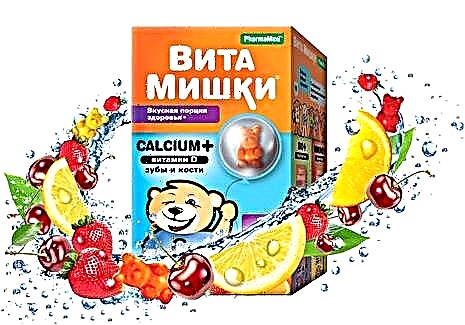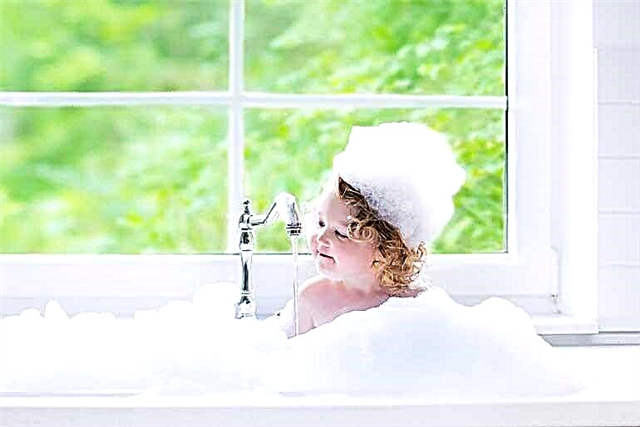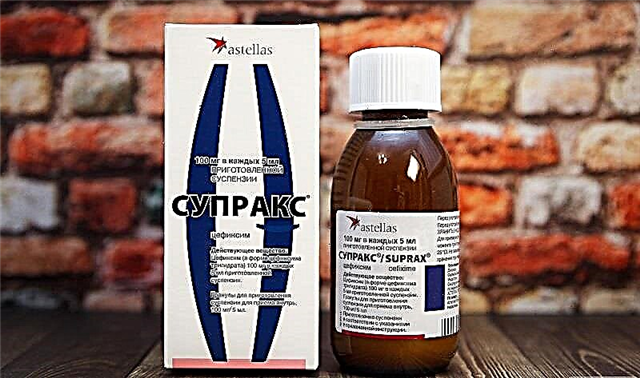Gastrointestinal upset is especially common in children in summer. They can be caused by a variety of reasons, the most common of which are infection and food poisoning. It is impossible to confuse a gastrointestinal disorder with any other disease, its characteristic symptoms are diarrhea (diarrhea) and vomiting. While such conditions are relatively safe for older preschool children, in infants they can, in some cases, be fatal.

Children often have stomach problems
Vomiting and diarrhea in infants
Parents often do not know what causes the child to vomit and diarrhea. However, in young children, this phenomenon is not uncommon, because:
- The infant's digestive system is immature;
- At this age, children often have individual intolerance to certain foods;
- Young children are susceptible to infections and viruses;
- If the baby already knows how to walk or crawl, he often has dirty hands.
Thus, if there are signs of poisoning or infection, do not panic.
Mechanisms of appearance
When a child is vilified and vomited, parents should not panic, since these phenomena are a protective reaction of the body, resistance to the harmful effects of toxins. The main thing is to know what to do if diarrhea and the child vomits. The answer to this question is simple: you cannot interfere with the natural process of ridding the body of poison. Any antiemetic and stool-fixing drugs before the arrival of the doctor are strictly prohibited.
An immature digestive system can react with diarrhea and vomiting to any food containing preservatives and chemical food additives, as well as to any smoked, fatty, fried food. You can give children such products only after three years and in very small portions. The same goes for exotic fruits out of season and industrial sweets with bright colors.

Vomiting and diarrhea are just the body's attempt to rid itself of harmful toxins
The main causes of vomiting and diarrhea
Parents often do not understand why the baby is sick with loose stools. A child has loose stools and vomiting for various reasons. Here are the most common ones:
- Gastrointestinal infection;
- Rotavirus;
- Eating substandard foods;
- Acute bacterial infection (eg, salmonellosis).
There are also cases of nervous stomach disorders, under the influence of stress.
Relatively safe
When a child is diarrhea and vomits, it can be caused by a banal overeating or eating foods that are not age-appropriate and create excessive stress on the liver and pancreas. Also, relatively safe causes of this pathological condition include allergic reactions, individual food intolerance, and eating large amounts of food after prolonged fasting.
Urgently needed
Parents should be aware that some conditions in which children have loose stools and nausea are urgently needed. You should urgently call a doctor if the child, in addition to nausea and diarrhea, has:
- Temperature above 38 degrees, which is difficult to get off;
- A rash on the body or face;
- Convulsions against a background of increased body temperature;
- Confusion or fainting.
In these cases, it is necessary to urgently call an ambulance and go to the hospital for treatment. Delay can be dangerous to the health and life of an infant up to one year old. If for any reason the ambulance cannot arrive on time, you should call a taxi and take the child to the hospital on your own so as not to waste precious time. The kid will be immediately treated.

If more than one child (or a child and an adult) is sick in a family at the same time, the upset stomach is most likely caused by an infection
Attention! If a child over a year old has started vomiting after eating canned food of home or industrial production or mushrooms in any form (salted, fried, mushroom soup), an ambulance should be called urgently. In this case, diarrhea and vomiting can be symptoms of botulism, a dangerous infectious disease.
Why is the condition of vomiting and diarrhea dangerous?
If the child vomits and diarrhea, this pathological condition can quickly lead to dehydration, especially if the baby refuses to drink water. Loss of moisture can lead to such dangerous consequences as:
- Coma;
- Disruption of the brain;
- Disruption of the central nervous system;
- Intoxication of the body.
To prevent such dangerous conditions, the baby should be given a small amount of water to drink every ten minutes. Drinking a lot at once can lead to repeated vomiting and increased dehydration with diarrhea. It is strictly forbidden to independently wash the child's stomach at home, only a specialist can do this.
How to tell if a baby is dehydrated
When a child has diarrhea and nausea at the same time, it is very important to prevent dehydration. This condition is insidious because it develops rapidly, especially in children under one year old. Determine the lack of water by such signs as sunken fontanelle, parched lips, deathly pale skin color, dry skin and mucous membranes. In severe cases, treatment of young children is carried out in a hospital setting: infants are given several droppers with saline to restore the body's water-salt balance.
Dehydration can also be determined by the general condition of the child. If the baby does not have enough water, he becomes lethargic and indifferent to everything. Sleep is disturbed, pulse slows, eyes look sunken. The danger of a lack of moisture cannot be underestimated. Skillful actions of parents and doctors can save a baby's life. With age, dehydration becomes less dangerous for the child's body.
Coping with diarrhea and nausea
To manage an upset stomach, parents need to know the following:
- It is strictly forbidden to use folk remedies before consulting a doctor;
- You should not force-feed the child during the illness, so as not to provoke nausea again;
- During diarrhea, you should not use medicines in the form of rectal suppositories, they will be useless;
- You cannot show your child your concern so that the stress does not pass on to the baby.
All parenting actions must be clear and confident. The main thing is to know which medicines should not be given to an infant without a doctor.
First aid
For vomiting and diarrhea, the child can be given ordinary activated charcoal, it is harmless and well removes toxins from the body. When a child vomits and vomits, his body must cleanse itself of toxins as quickly as possible, then the bad state of health will pass without medication. Some doctors recommend giving children a ready-made glucose solution to prevent dehydration. It is sold in powder form in pharmacies and is excellent at replenishing moisture during gastrointestinal infections.

You should not give the baby medicine before the pediatrician arrives, so as not to distort the picture of the disease
Children's diet
If the child burps and vilifies, the local pediatrician will tell you what to do. He will help to establish the correct diet. All food should be mashed or boiled, but not fried. It is better to replace bread with crackers. For a while, you will have to exclude from the diet all vegetables and fruits, fresh and canned. The same applies to any dairy products: kefir, yogurt, ice cream, baby curd. Any industrial sweets and juices are prohibited.
Attention! With a gastrointestinal infection, the baby should have a fractional diet. With this regime, the child eats often, 5-6 times a day, but little by little, so as not to overload the stomach. Water can be drunk in unlimited quantities, the more the better.
How to prevent diarrhea and vomiting
If diarrhea is common and the child is nauseous, parents should think about timely prevention of gastrointestinal disorders in order to stop their development in time. This requires:
- Make sure that the baby has clean hands at all times;
- If there are pets at home, periodically treat them from worms;
- Give the child age-appropriate antihelminthics;
- Do not contact people who have recently had a gastrointestinal infection;
- Wash any vegetables, fruits and berries thoroughly. This applies not only to products purchased at the market or in a store, but also to crops from their own summer cottage.
You need to regularly clean the children's room, allocate separate dishes for the baby and take wet wipes with you for a walk so that you can always wipe your baby's hands. Following these simple rules will help you avoid many troubles.
Having got used to following the basic rules of hygiene, a child, becoming older, will rarely suffer from diarrhea and vomiting. It is known that any gastrointestinal disorder weakens the baby's immune system, so parents should do everything possible to prevent the problem. The main thing is not to panic at the first signs of a gastrointestinal infection, but to act calmly and in cold blood.
Any disease is best prevented in advance, so that later you do not have to spend time and effort on treatment. To ensure that the baby does not have gastrointestinal upset, nausea and loose stools, he should receive only the freshest and most benign food, appropriate for age. In case of any doubt about the proper quality of the product, in no case should it be given to a child.



